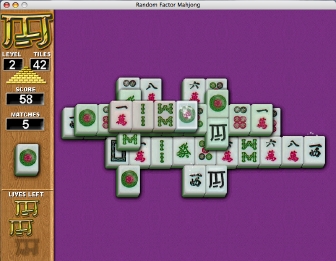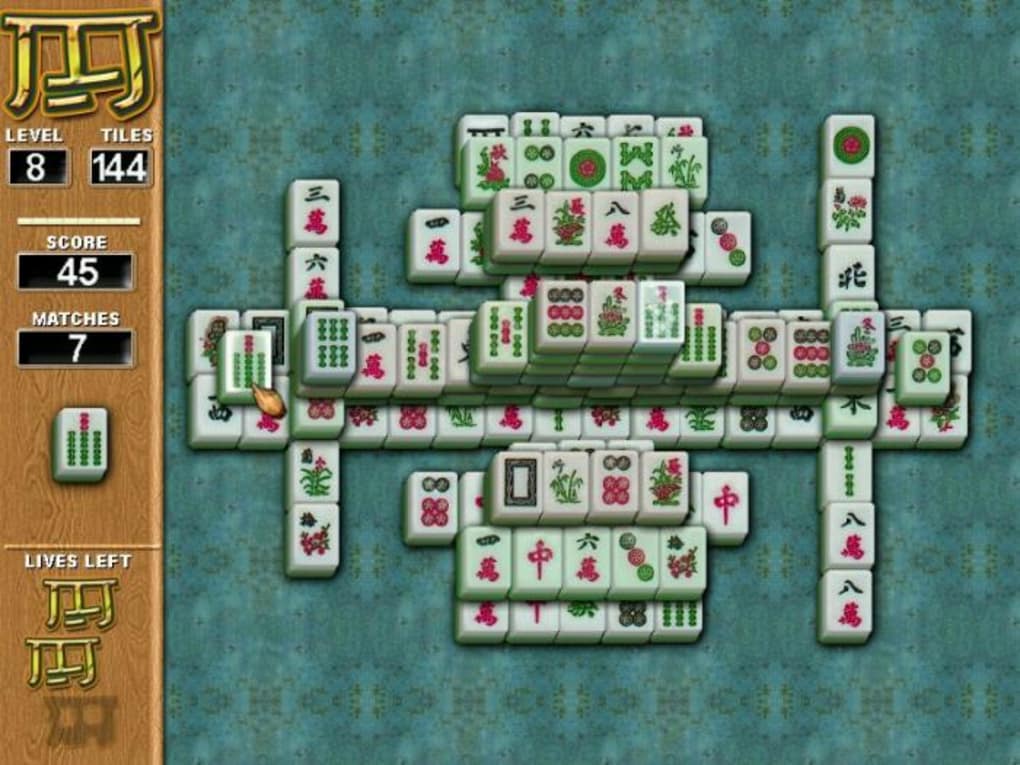
Playing mahjong requires four players sitting around a square table with raised edges. These repeated activities may improve executive function in aging.
Random factor mahjong manual#
In order to win, the participants need to focus and coordinate visual, mental, and manual activities. It has win-or-lose gambling-like characteristics and is played among four players. Mahjong is a popular form of social entertainment for elderly people in China. An enriched environmental, emotional stimulation, and interpersonal interactions during mahjong activity may also play a role in the reactivation of neural circuits in an aged brain. Improved episodic memory after playing mahjong may involve the activation of selective and divided attention, inhibition of interfering stimuli, and mobilization of manipulation skills ( 10). Playing mahjong has also been found effective in improving short-term memory, attention, and logical thinking in both middle-aged and elderly people ( 9). reported progressive improvement in cognitive performance after patients who were affected by an early stage of dementia played mahjong ( 8). Recent studies show that intellectual activities and hobbies involving mental workload can have therapeutic effects on cognitive function in elderly people ( 7).

Thus, there is a need to explore effective interventions that can improve executive function in elderly people. Another study has shown that intervention to stabilize/improve executive function in the early stages of dementia may delay the decline of IADL and improve the quality of life of elderly people ( 6). Executive function was more closely related to instrumental and advanced ADL than to basic ADL ( 5). Executive function was a stronger predictor for forecasting IADL dependence than memory, particularly for the performance of complex finances, the performance of complex cooking, and the ability to remember events ( 4). reported that most elderly with MCI were deficient in their abilities to perform IADL ( 4). as well as others, have shown a significant correlation between executive function and the ability to complete IADL in elderly with MCI ( 3). The decline in executive function may have a negative effect on the instrumental activities of daily living (IADL). Executive function is the advanced cognitive function for completing tasks and/or overcoming difficulties involving prefrontal cortex-mediated working memory and reflection, planning, organization, and management ( 2). The activity and executive function of the prefrontal cortex is significantly reduced with aging ( 2). The decline in executive function in elderly people with MCI is particularly obvious. Between 10 and 20 percent of adults above the age of 65 are diagnosed with MCI, and approximately 10 percent of MCI adults progress to Alzheimer's disease annually ( 1). Mild cognitive impairment (MCI) is a critical transient period of cognitive decline between normal aging and early dementia. Because Mahjong is a simple, low-cost entertainment activity, it could be widely applied to slow down or reverse the progression of cognitive decline in people with MCI, including those with traumatic brain injury. Significant correlations were also found between STT and FAQ scores.Ĭonclusions: Playing Mahjong for 12 weeks improved the executive function of elderly people with MCI. The MoCA-B, STT, and FAQ scores, however, improved significantly in the mahjong group but not in the control group after the 12-week mahjong administration. Results: There were no baseline differences in MoCA-B, STT, and FAQ scoring between the two groups. Executive function was evaluated using the Montreal Cognitive Assessment-Beijing (MoCA-B), the Shape Trail Test (STT), and the Functional Activities Questionnaire (FAQ) before the study and then at 6 and 12 weeks after mahjong administration. Subjects in the mahjong group played mahjong three times a week for 12 weeks, while people in the control group assumed normal daily activity. Methods: 56 elderly people (74.3 ± 4.3 years of age) with MCI from the First Social Welfare the First Nursing Home of Nanchong were randomized into mahjong and control groups ( N = 28, each group).

However, its effect on executive function remains unknown. Recent studies suggest that playing mahjong may improve attention and memory in elderly people. So far, effective treatment that can stabilize or reverse the cognitive decline associated with MCI is lacking.

Han Zhang 1, Yi Peng 1, Chunliu Li 1, Hong Lan 1, Guoqiang Xing 2 *, Zhu Chen 1 and Bo Zhang 1


 0 kommentar(er)
0 kommentar(er)
